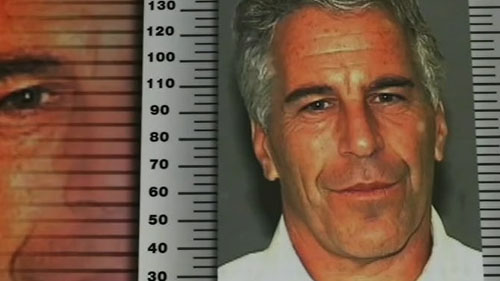| Recent Featured Videos and Articles | Eastern “Orthodoxy” Refuted | How To Avoid Sin | The Antichrist Identified! | What Fake Christians Get Wrong About Ephesians | Why So Many Can't Believe | “Magicians” Prove A Spiritual World Exists | Amazing Evidence For God | News Links |
| Vatican II “Catholic” Church Exposed | Steps To Convert | Outside The Church There Is No Salvation | E-Exchanges | The Holy Rosary | Padre Pio | Traditional Catholic Issues And Groups | Help Save Souls: Donate |  |









 " />
" /> " />
" /> " />
" /> " />
" /> " />
" />




Pope Leo The Great On The Necessity Of Baptism For Salvation
According to the teaching of Pope Leo the Great, they will perish without baptism. By the way, if someone has a doubt about how a baptism was performed, a conditional baptism should be done (if the person agrees on all the issues). This file covers: How To Perform A Baptism & A Conditional Baptism.
No one can be freed from the state of original sin without the Sacrament of Baptism.
This is a very important passage. Pope St. Leo the Great discusses how license is given to baptize unbaptized catechumens who are in any danger, and he states specifically that baptism is “the only safeguard of true salvation to anyone in peril of death, in the crisis of a siege, in the distress of persecution, in the terror of shipwreck.” This directly contradicts the idea of ‘baptism of blood’, as well as ‘baptism of desire’. Notice the pope’s reference to the distress of persecution (in persecutionis angustiis). The distress of persecution refers to a situation in which people might be killed for the faith of Jesus Christ. An unbaptized catechumen in “the distress of persecution” (in persecutionis angustiis) is the precise scenario in which proponents of ‘baptism of blood’ claim that a person could be saved without water baptism. But Leo the Great teaches the opposite.
He teaches that for unbaptized catechumens in that situation, in the distress of persecution or any other danger, water baptism is the only safeguard of true salvation (verae salutis singulare praesidium). That would not be the case if there were other forms of baptism or other ways to be saved. This quote contradicts the idea of ‘baptism of blood’ and ‘baptism of desire’ for unbaptized catechumens. This passage from Leo the Great also refutes those who falsely claim that the fathers of the Church were unanimous in teaching that ‘baptism of blood’ can replace water baptism. No, they weren’t. Since he was a pope and a father of the Church, Leo’s passage, which directly contradicts the ideas of ‘baptism of blood’ and ‘baptism of desire’, trumps any quote from a father or fathers of the Church who said something different. For a further analysis of this significant text, see this article: Pope St. Leo The Great Directly Contradicts 'Baptism Of Blood' And 'Baptism Of Desire'.
In this document he teaches that people who were to be regenerated (unbaptized catechumens) will lose their souls if they don’t receive water baptism. There is no ‘baptism of desire.’ Receiving the Sacrament of Baptism is the only way to be saved. That’s the teaching of the Apostolic See.
Pope St. Leo infallibly teaches that in first sanctification from sin, the Spirit of Sanctification and the Blood of Redemption cannot be separated from the water of baptism! Thus, there can be no justification by the Spirit and the Blood without the Sacrament of Baptism. This excludes the idea of 'baptism of desire' and 'baptism of blood', according to which sanctification by the Spirit and the Blood without water baptism is possible.
Commenting on John 1:13, Pope Leo the Great teaches that those who are born of God (which one must be to be justified and saved) are those baptized, and that they are specifically born “not of blood, nor of the desire of the flesh, nor of the desire of man, but of God.” It’s interesting that the word translated here as blood is, in the Greek of John’s Gospel and in the Latin of Leo the Great’s statement, actually in the plural. St. John uses the Greek word αἱμάτων, which literally means ‘of bloods’. St. John is saying that the true children of God were born ‘not of bloods.’
When the Greek word for blood (αἷμα) is used in a plural form, as it is here in John 1:13, it overwhelmingly refers to the shedding of blood in one form or another. For instance, in the Septuagint (the Greek translation of the Old Testament), out of the 53 uses where the Greek word αἷμα is used in the plural, it clearly refers to the shedding of blood in at least 50 of those references. Thus, if understood according to its typical usage in the Septuagint, by declaring that the true children of God are those born ‘not of bloods’, St. John is teaching that the children of God are those born not of the shedding of blood, nor of the desire of the flesh, nor of the desire of man, but of God.
In the future we might add more quotes from Leo the Great on this point. There are also people who lie about Leo the Great on baptism, and that is covered in one of the articles linked to below.
The Best Argument Against “Baptism of Desire” (video and article)
The Latin Text of the Oldest Surviving Papal Decree Rejects “Baptism of Desire” (video and article)
Cornelius, The Gift Of Languages & The Necessity Of Baptism (video and article)
Outside the Catholic Church There Is Absolutely No Salvation (book)
Supporters Of ‘Baptism Of Blood’ Lie About Pope Leo The Great (article)
Sign up for our free e-mail list to see future vaticancatholic.com videos and articles.
Recent Content
^